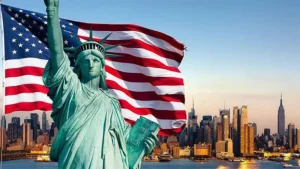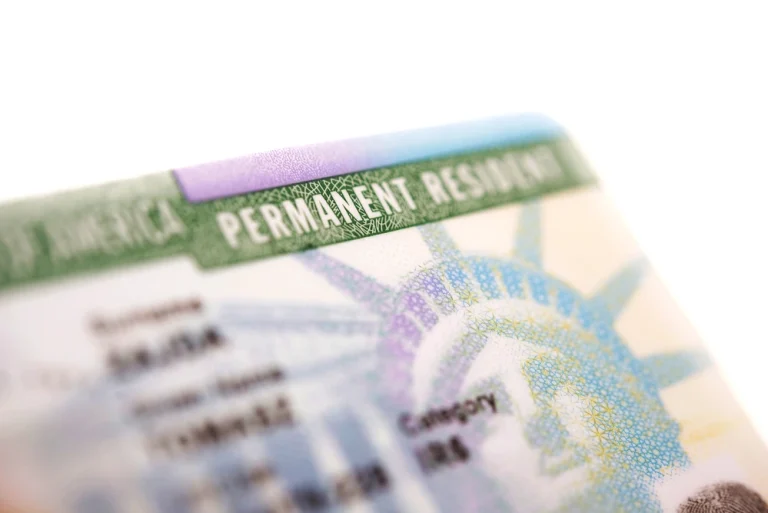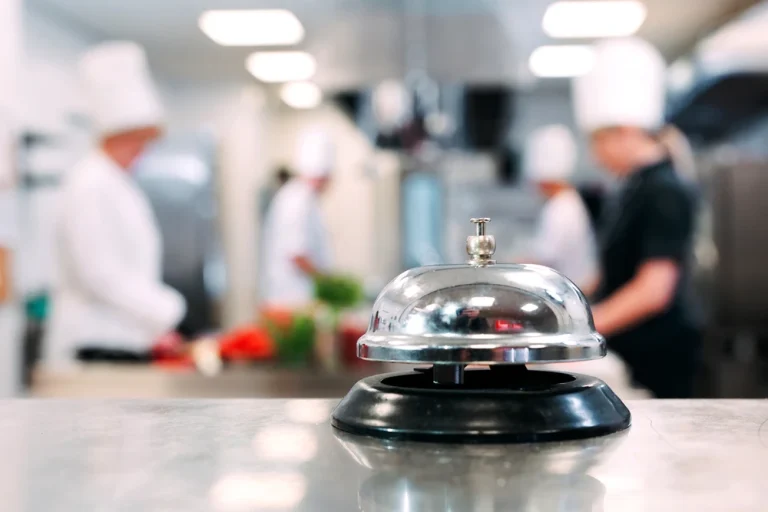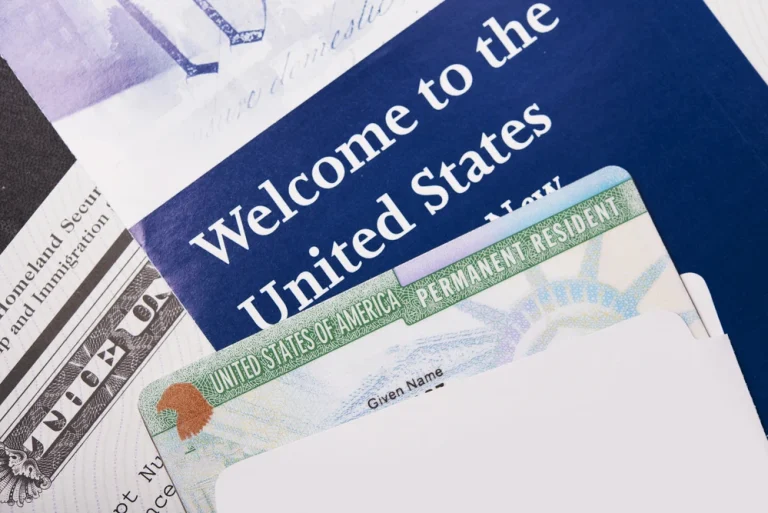Applying For Visas At a U.S. Consulate



If you answered yes to any of these, there is a strong probability we can help. Our experience has enabled us to aid thousands of clients with their application processes, achieving a remarkable success rate of 99%.
Applying For Visas At a U.S. Consulate
At Abraham Benhayoun Immigration Law Offices, we understand the pivotal role of meticulous preparation in the visa application process at U.S. consulates and embassies. Our expertise encompasses the full spectrum of visas, from non-immigrant categories like tourist, student, and work visas, to immigrant visas for those seeking permanent residency in the U.S. We recognize that while applicants typically cannot have their immigration attorneys present during visa interviews, our thorough preparation can significantly enhance their chances of success. We routinely prepare our clients for their applications and interviews, ensuring they are well-informed and ready to navigate the process with confidence, backed by our comprehensive support and communication with consulate officials.

The eligibility requirements for applying for visas at a U.S. Consulate vary depending on the type of visa being sought. However, some general requirements apply to most visa categories:
- Valid Passport: Applicants must have a valid passport that will remain valid for at least six months beyond the period of stay in the United States.
- Nonimmigrant Visa Application (Form DS-160): Complete and submit the online nonimmigrant visa application form for temporary travel to the United States.
- Photograph: A photograph meeting specific requirements must be uploaded while completing the online Form DS-160.
- Visa Application Fee: Payment of the nonrefundable visa application fee is required for most visa types.
- Interview: Applicants aged 14–79 are usually required to attend a visa interview at the U.S. Embassy or Consulate.
- Proof of Eligibility for Visa Category: Documentation varies by visa type but generally includes proof of the purpose of your trip, intent to depart the United States after the trip, and the ability to pay all costs of the trip.
- Ties to Home Country: Evidence of strong ties to your home country that will ensure your return after your temporary stay in the U.S. This can include job, family, property, or other commitments.
- Additional Documentation for Specific Visa Types:
- Tourist Visa (B-2): Proof of financial means, itinerary details, etc.
- Student Visa (F or M): Acceptance at a SEVP certified school, proof of financial support, Form I-20, etc.
- Work Visa (H, L, O, P, etc.): Job offer from a U.S. employer, required qualifications, petition approval, etc.
- Immigrant Visas: Various documents depending on the category, such as family relationship, employment offer, etc.
- Health and Character: Applicants may be required to meet health and character checks, including medical examinations and no criminal record.
- Prior Visa Violations: Applicants with prior visa violations or overstays may face additional scrutiny or ineligibility.
- Consular Electronic Application Center (CEAC) Confirmation: This confirms that you have successfully submitted the DS-160 form.
- Appointment Confirmation: Confirmation of your appointment schedule.
Note: It’s important to review the specific requirements for the visa category you are applying for, as these can vary significantly.
At Abraham Benhayoun Immigration Law Offices, we understand that applying for visas at a U.S. Consulate involves several strategic steps to enhance the likelihood of approval. Typical legal strategies include:
- Choosing the Correct Visa Type: Accurately determining the most appropriate visa category based on the purpose of travel and eligibility.
- Comprehensive Application Preparation: Thoroughly completing all required forms, such as the DS-160 for nonimmigrant visas, and ensuring accuracy in all details provided.
- Gathering Supporting Documentation: Collecting all necessary documents to substantiate the visa application, including financial documents, employment letters, invitations, school admissions, and more, depending on the visa type.
- Demonstrating Strong Ties to Home Country: Preparing evidence to show strong ties to the applicant’s home country, which can include job commitments, family relationships, property ownership, or other significant connections.
- Preparing for the Interview: Coaching applicants for the consulate interview, focusing on clear communication of their travel purpose, plans, and intent to return to their home country.
- Addressing Potential Inadmissibility Issues: Proactively dealing with issues that might lead to inadmissibility, such as past visa violations, criminal history, or health-related concerns.
- Responding to Requests for Additional Information: Being prepared to provide additional information or documentation if requested by the consulate.
- Ensuring Compliance with Visa Specific Requirements: Each visa category has specific requirements (such as employer petitions for work visas, school acceptance for student visas), and it’s crucial to comply with these.
- Maintaining Updated Information: Keeping abreast of any changes in visa laws, processing times, or consulate-specific procedures.
- Visa Interview Preparation: Familiarizing the applicant with common interview questions and best practices for a successful consulate interview.
- Follow-up and Communication with Consulate: Ensuring timely follow-ups and clear communication with the consulate regarding application status or additional requirements.
Note: These strategies should be tailored to each individual’s circumstances, as consulate processes and requirements can vary based on the country, the specific U.S. consulate, and the visa type being applied for.
Our firm is adept at navigating the complexities of federal statutes and regulations related to visa applications at U.S. Consulates. We offer personalized legal assistance, recognizing that the application of these laws can vary significantly based on individual cases, visa types, and evolving immigration policies.
- Foreign Affairs Manual (9 FAM): 9 FAM deals exclusively with the adjudication of U.S. visas, both nonimmigrant and immigrant, providing consular officers with the guidance needed to make informed decisions based on U.S. immigration law and regulations.
Note: It is important to note that the application and interpretation of these laws may vary on a case-by-case basis and are subject to changes in immigration laws and consulate-specific policies.
Testimonials

 Marisela Altuve2024-11-01
Marisela Altuve2024-11-01 Mi esposo y yo estamos contentos y muy satisfechos con el resultado de toda la gestión realizada por Abraham Benhayoun en el proceso de obtener mi residencia por cambio de estatus en USA. Lo recomendamos con los ojos cerrados y si hubiesen más estrellas, con seguridad se las daríamos. Originalmente mi esposo pensaba que podíamos hacer el proceso nosotros solos , pero lo convencí de que era mejor buscar la asesoría de un profesional en la materia ; por recomendación de una amiga llegamos a Abraham y su firma . Definitivamente fue la mejor decisión!!! Nos sentimos seguros y apoyados durante todo el proceso. Abraham es excelente profesional, conocedor de la materia de inmigración y además es una persona súper liviana, amigable y familiar en su trato, siempre dispuesto a responder dudas y a orientarte. 100% recomendado. Gracias Abraham
Mi esposo y yo estamos contentos y muy satisfechos con el resultado de toda la gestión realizada por Abraham Benhayoun en el proceso de obtener mi residencia por cambio de estatus en USA. Lo recomendamos con los ojos cerrados y si hubiesen más estrellas, con seguridad se las daríamos. Originalmente mi esposo pensaba que podíamos hacer el proceso nosotros solos , pero lo convencí de que era mejor buscar la asesoría de un profesional en la materia ; por recomendación de una amiga llegamos a Abraham y su firma . Definitivamente fue la mejor decisión!!! Nos sentimos seguros y apoyados durante todo el proceso. Abraham es excelente profesional, conocedor de la materia de inmigración y además es una persona súper liviana, amigable y familiar en su trato, siempre dispuesto a responder dudas y a orientarte. 100% recomendado. Gracias Abraham
 Crystal Chester2024-09-27
Crystal Chester2024-09-27 As a sponsor navigating the complexities of my partner’s immigration process, I cannot express how grateful I am to have found Abraham. After facing challenges with previous lawyers, I was hesitant but hopeful when I decided to work with him. From our very first meeting, it was clear that Abraham was not just a legal expert; he genuinely cares about his clients. He made us feel seen and understood, guiding us through each step with patience and clarity. His attention to detail and proactive approach gave us the confidence we desperately needed. Abraham’s support was invaluable for us as a couple. He made sure that every aspect of our case was handled meticulously, and he was always available to answer our questions and address our concerns. His dedication to our success made the entire process feel manageable and less daunting. Thanks to Abraham and his firm, we can finally see our dreams of building a life together becoming a reality. I truly wish we had found him sooner; the peace of mind he provided was priceless. If you’re looking for an immigration lawyer who will advocate fiercely for you and treat you like family, Abraham is the one to choose. We are forever grateful for his guidance and support on this life-changing journey.
As a sponsor navigating the complexities of my partner’s immigration process, I cannot express how grateful I am to have found Abraham. After facing challenges with previous lawyers, I was hesitant but hopeful when I decided to work with him. From our very first meeting, it was clear that Abraham was not just a legal expert; he genuinely cares about his clients. He made us feel seen and understood, guiding us through each step with patience and clarity. His attention to detail and proactive approach gave us the confidence we desperately needed. Abraham’s support was invaluable for us as a couple. He made sure that every aspect of our case was handled meticulously, and he was always available to answer our questions and address our concerns. His dedication to our success made the entire process feel manageable and less daunting. Thanks to Abraham and his firm, we can finally see our dreams of building a life together becoming a reality. I truly wish we had found him sooner; the peace of mind he provided was priceless. If you’re looking for an immigration lawyer who will advocate fiercely for you and treat you like family, Abraham is the one to choose. We are forever grateful for his guidance and support on this life-changing journey.
 Maria Fassrainer2024-09-27
Maria Fassrainer2024-09-27 After a series of disappointing experiences with other lawyers, I finally found Abraham, and I couldn’t be more grateful. From the moment I decided to entrust him with my immigration process, it has truly been a blessing. Abraham is not just knowledgeable; he genuinely cares about his clients. He was always on top of my case, ensuring that everything was handled properly and efficiently. His guidance and support provided me with the trust I needed during such a daunting process. Thanks to Abraham and his firm, I can confidently say I’m on the right path now. My only regret is not choosing him as my first option. If you’re looking for an immigration lawyer who will advocate for you and prioritize your case, I highly recommend reaching out to Abraham. You won’t be disappointed! Gracias again for everything.
After a series of disappointing experiences with other lawyers, I finally found Abraham, and I couldn’t be more grateful. From the moment I decided to entrust him with my immigration process, it has truly been a blessing. Abraham is not just knowledgeable; he genuinely cares about his clients. He was always on top of my case, ensuring that everything was handled properly and efficiently. His guidance and support provided me with the trust I needed during such a daunting process. Thanks to Abraham and his firm, I can confidently say I’m on the right path now. My only regret is not choosing him as my first option. If you’re looking for an immigration lawyer who will advocate for you and prioritize your case, I highly recommend reaching out to Abraham. You won’t be disappointed! Gracias again for everything.
 Larry Reeb2024-09-21
Larry Reeb2024-09-21 From start to finish we were comfortable that this would work out. Abraham left no stone uncovered and armed us with the confidence needed to get where we want to be. First class all the way around.
From start to finish we were comfortable that this would work out. Abraham left no stone uncovered and armed us with the confidence needed to get where we want to be. First class all the way around.
 David Yacaman2024-09-05
David Yacaman2024-09-05 I'm so grateful for Attorney Abraham's dedication to my case. They were always responsive and went above and beyond to ensure a successful outcome. I highly recommend Abraham to anyone navigating the complexities of immigration law. Their professionalism and expertise are unmatched.
I'm so grateful for Attorney Abraham's dedication to my case. They were always responsive and went above and beyond to ensure a successful outcome. I highly recommend Abraham to anyone navigating the complexities of immigration law. Their professionalism and expertise are unmatched.
 Katiuska Nuñez2024-09-04
Katiuska Nuñez2024-09-04 Mi Experiencia personal con el abogado de Migración @Abraham Benhayoun fue absolutamente satisfactoria con gran profesionalismo que los caracteriza en tiempos ,responsabilidad y compromiso !!! Me siento muy agradecida de haber encontrado el Mejor ser humano y equipo de trabajo , para realizar tus trámites Legales.
Mi Experiencia personal con el abogado de Migración @Abraham Benhayoun fue absolutamente satisfactoria con gran profesionalismo que los caracteriza en tiempos ,responsabilidad y compromiso !!! Me siento muy agradecida de haber encontrado el Mejor ser humano y equipo de trabajo , para realizar tus trámites Legales.
 Gioni Baiutti2024-09-03
Gioni Baiutti2024-09-03 11 años conociendo y trabajando con el mejor abogado de inmigración. No hay duda alguna. Dedicación, asesoramiento, interés y preocupación por tu caso de inmigración. Dos renovaciones de mi visa E2, sin complicaciones, siguiendo sus consejos. Abraham escogió siempre el camino correcto. Y aunque parezca menos importante, se convertirá en un gran amigo en quien confiar. Un gran profesional. Lo recomiendo al 1000%.
11 años conociendo y trabajando con el mejor abogado de inmigración. No hay duda alguna. Dedicación, asesoramiento, interés y preocupación por tu caso de inmigración. Dos renovaciones de mi visa E2, sin complicaciones, siguiendo sus consejos. Abraham escogió siempre el camino correcto. Y aunque parezca menos importante, se convertirá en un gran amigo en quien confiar. Un gran profesional. Lo recomiendo al 1000%.
 Elines Sarmiento2024-08-28
Elines Sarmiento2024-08-28 Su experiencia y preparación minuciosa se hicieron evidentes, lo que dio como resultado una resolución exitosa que ha impactado enormemente mi vida para mejor. Estoy realmente agradecido por su compromiso con mi caso y tengo en la más alta consideración sus habilidades profesionales. Gracias TODO LLEGA CON FACILIDAD Y GOZO MUESTRAME MAS UNIVERO.. !!!!!AMEN... Your experience and thorough preparation were evident resulting in a successful resolution that has greatly impacted my life for the better. I am truly grateful for your commitment to my case and hold your professional skills in the highest regard. Thank you EVERYTHING COMES WITH EASE AND JOY SHOW ME MORE UNIVERSE.. !!!!! AMEN...Thank you Mr. Abraham
Su experiencia y preparación minuciosa se hicieron evidentes, lo que dio como resultado una resolución exitosa que ha impactado enormemente mi vida para mejor. Estoy realmente agradecido por su compromiso con mi caso y tengo en la más alta consideración sus habilidades profesionales. Gracias TODO LLEGA CON FACILIDAD Y GOZO MUESTRAME MAS UNIVERO.. !!!!!AMEN... Your experience and thorough preparation were evident resulting in a successful resolution that has greatly impacted my life for the better. I am truly grateful for your commitment to my case and hold your professional skills in the highest regard. Thank you EVERYTHING COMES WITH EASE AND JOY SHOW ME MORE UNIVERSE.. !!!!! AMEN...Thank you Mr. Abraham
 elisa magana2024-08-14
elisa magana2024-08-14 Abraham Benhayoun is the most exceptional immigration lawyer with whom I have had the pleasure of working. He handled my mother's immigration case with utmost professionalism and care. Abraham took the time to comprehensively answer and explain all our questions with great detail and patience, treating us as if we were his own family. Having collaborated with several immigration attorneys in the past, I can affirm that Abraham stands out as the top immigration attorney. I wholeheartedly recommend his services without hesitation.
Abraham Benhayoun is the most exceptional immigration lawyer with whom I have had the pleasure of working. He handled my mother's immigration case with utmost professionalism and care. Abraham took the time to comprehensively answer and explain all our questions with great detail and patience, treating us as if we were his own family. Having collaborated with several immigration attorneys in the past, I can affirm that Abraham stands out as the top immigration attorney. I wholeheartedly recommend his services without hesitation.
 J P2024-08-12
J P2024-08-12 Highly recommended. Fantastic attorney, who knows how to communicate with clients, very informative, and helps you step by step. I highly recommend to reach out to him Abraham for any visa enquiry, its worth it.
Highly recommended. Fantastic attorney, who knows how to communicate with clients, very informative, and helps you step by step. I highly recommend to reach out to him Abraham for any visa enquiry, its worth it.
We’re ready to help. Let’s discuss your case.
As a multi-jurisdictional lawyer, Abraham has a deep understanding of estate planning, international tax, and corporate issues that visa applicants often deal with. This allows Abraham to give his clients a well-rounded service almost no other immigration attorney at his level can offer.
Case Studies
Client Background Our client, a distinguished professional in the music field originally from South America, had already secured an O-1 visa, successfully renewing it once.
Client Background Our client, a leading restaurant group in South Florida, approached us for assistance with their labor certification process prior to the COVID-19 pandemic.
Client Background Our client, the father of a U.S. citizen, embarked on the journey towards obtaining a green card. However, the case presented unique challenges



